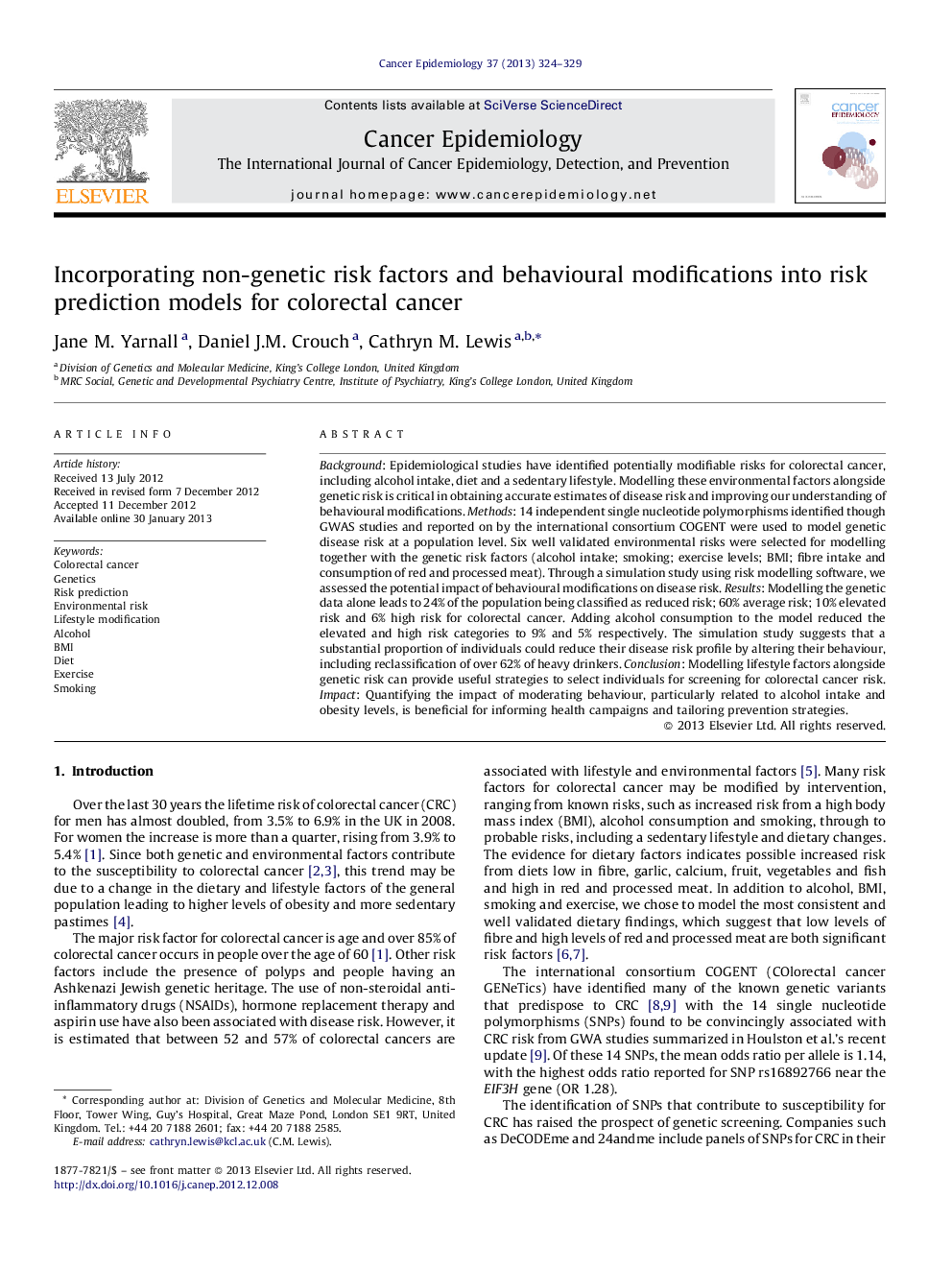| Article ID | Journal | Published Year | Pages | File Type |
|---|---|---|---|---|
| 2109552 | Cancer Epidemiology | 2013 | 6 Pages |
Background: Epidemiological studies have identified potentially modifiable risks for colorectal cancer, including alcohol intake, diet and a sedentary lifestyle. Modelling these environmental factors alongside genetic risk is critical in obtaining accurate estimates of disease risk and improving our understanding of behavioural modifications. Methods: 14 independent single nucleotide polymorphisms identified though GWAS studies and reported on by the international consortium COGENT were used to model genetic disease risk at a population level. Six well validated environmental risks were selected for modelling together with the genetic risk factors (alcohol intake; smoking; exercise levels; BMI; fibre intake and consumption of red and processed meat). Through a simulation study using risk modelling software, we assessed the potential impact of behavioural modifications on disease risk. Results: Modelling the genetic data alone leads to 24% of the population being classified as reduced risk; 60% average risk; 10% elevated risk and 6% high risk for colorectal cancer. Adding alcohol consumption to the model reduced the elevated and high risk categories to 9% and 5% respectively. The simulation study suggests that a substantial proportion of individuals could reduce their disease risk profile by altering their behaviour, including reclassification of over 62% of heavy drinkers. Conclusion: Modelling lifestyle factors alongside genetic risk can provide useful strategies to select individuals for screening for colorectal cancer risk. Impact: Quantifying the impact of moderating behaviour, particularly related to alcohol intake and obesity levels, is beneficial for informing health campaigns and tailoring prevention strategies.
